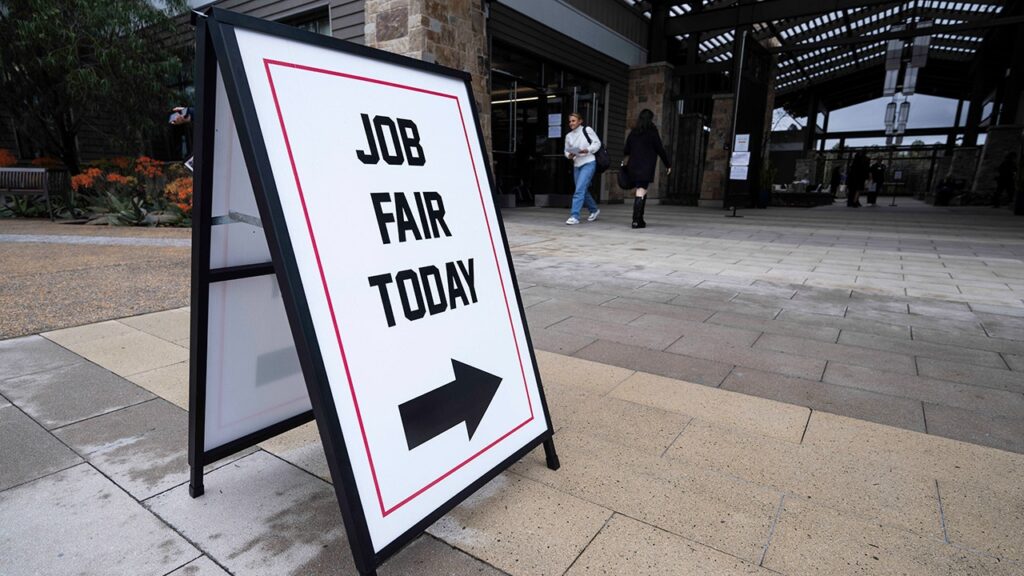 |
| Gold V.1.3.1 signal Telegram Channel (English) |

Federal Shutdown in Ohio: Immediate Impacts, Economic Risks, and the Human Cost of Political Gridlock
2025-10-04 @ 20:01
As the federal government enters yet another shutdown, the consequences are immediately being felt across the country, with Ohio serving as a clear example of both the short- and long-term impacts on ordinary Americans and the broader economy. This political standoff, rooted in deep partisan divides, is not just a matter of political gamesmanship—its real-world effects reach families, businesses, and communities.
Immediate Effects on Federal Workers and Services
More than 80,000 federal employees in Ohio alone are facing furloughs or working without pay. These workers, ranging from administrative staff to critical emergency personnel, suddenly find themselves without a reliable income. While those deemed essential—such as hospital and safety employees—must remain on the job, they too wait for paychecks that may not arrive until lawmakers end their stalemate.
In the short term, the direct effects for many Ohioans may appear limited. State officials note that, for now, the shutdown’s impact is not widespread. Essential services continue, and most daily functions run as usual. However, the situation is fluid. With every day the shutdown endures, the list of closed federal facilities, from parks to museums, grows longer, and the risk to key services and personnel increases.
Economic Ripple Effects and Community Concerns
The uncertainty surrounding how long the shutdown will last adds to the tension. Past government shutdowns have varied in length, but the longer they continue, the deeper the damage—not just for workers, but for local economies dependent on federal contracts and consumer spending. Small towns and rural communities could feel an acute impact, especially where hospitals and clinics rely heavily on Medicaid reimbursements or federal health programs.
The current budget dispute has placed healthcare funding in the center of the debate. With already legislated cuts to Medicaid set to hit in the coming fiscal year, hospitals—particularly those serving older populations or operating on thin margins in rural areas—face the real possibility of reduced services or even closure. Such cuts would have a profound effect on access to care, especially in communities where options are already limited.
Political Standoff and the Blame Game
The root of the shutdown lies in bitter disagreements over budget priorities. While both parties accuse each other of intransigence, the result is legislative gridlock and growing distrust. Many Republicans argue they put forward a straightforward funding plan—mirroring previous bipartisan deals—only for Democrats to reject it over issues like healthcare subsidies and broader fiscal policy. Democrats, meanwhile, believe that Republican demands threaten crucial social programs and are under mounting pressure from their own constituents not to concede.
This climate of political distrust appears unlikely to ease soon. Congressional leaders seem hardened in their positions, and neither side is eager to give ground. As frustration grows among ordinary Americans, there is a push for greater accountability. One notable proposal from an Ohio senator calls for a daily $500 tax on members of Congress during any government shutdown, arguing that lawmakers should feel the consequences of their own inaction just as their constituents do.
Ohio’s Response and Preparedness
While the governor of Ohio expresses hope that a prolonged shutdown can be avoided, state agencies remain in close contact with federal partners. Plans are being made to adapt as events unfold. However, state leaders acknowledge that the situation could escalate quickly with unforeseen outcomes—particularly if the deadlock drags on and federal funds remain frozen.
The greatest fear is not only about the current interruption but also about the long-term erosion of confidence in government. As families, workers, and businesses struggle with uncertainty, they expect—indeed, demand—that lawmakers fulfill their duty and find common ground.
Looking Forward: Lessons and Cautions
For now, the burden falls squarely on Congress to resolve the funding impasse and restore stability. The ongoing political maneuvering may grab headlines, but it is the quiet stories—of the family waiting for a paycheck, the hospital cutting back on services, or the small business owner worried about the future—that reveal the true costs of legislative dysfunction.
For financial professionals and ordinary citizens alike, the current shutdown is a stark reminder of how closely politics and personal finances are linked. Preparedness, diversification, and a keen awareness of policy trends have rarely been so important. And as this episode proves, economic resilience is not just an individual effort, but a collective one—reliant on leaders who are willing to do the hard work of compromise.




